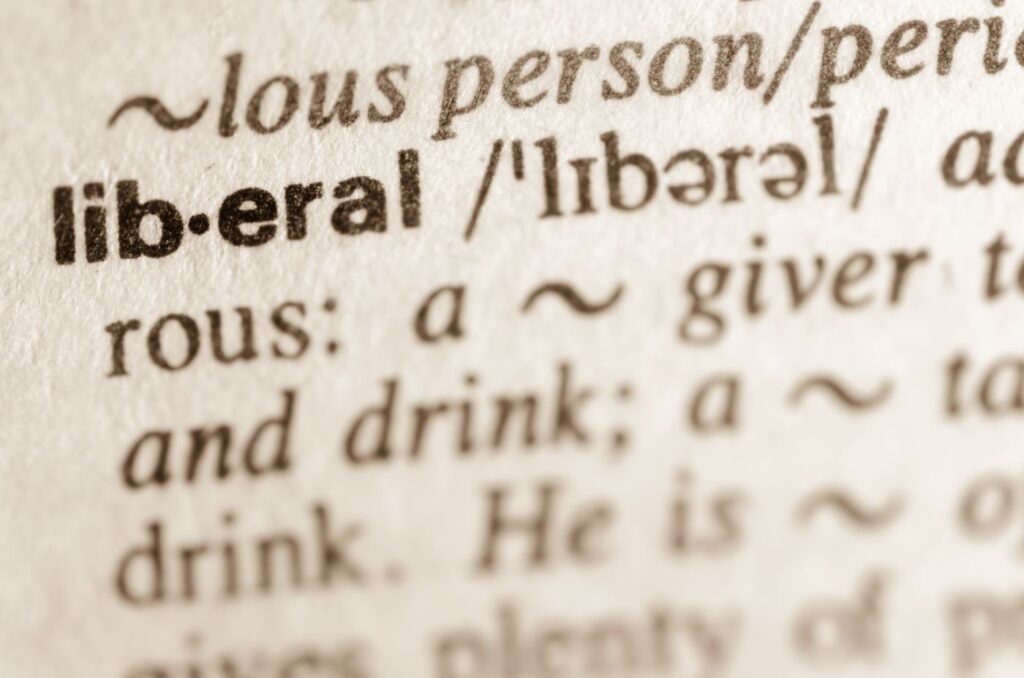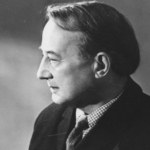When I first became interested in political theory in the 1980s and ’90s, the so-called liberal-communitarian debate dominated the field. It ultimately proved to be a family quarrel among thinkers who were, broadly speaking, liberal democrats. Some of them emphasized a more individualistic, rights-based vision of democratic society; others laid more weight on the role played by “thick” communities in forming individual personality, and thus on the duty to sustain the families, churches, unions, and other groups that make us who we are.
John Rawls, with his famous thought experiment deriving principles of justice from deliberation behind a “veil of ignorance” in the “original position,” was the unquestioned patron saint of the liberals. The communitarians were a more ragtag group. Their philosophical heavyweights were Charles Taylor, drawing on a broadly Hegelian framework spiced with Canadian multiculturalism, and Alasdair MacIntyre, shuttling back and forth between Duke and Notre Dame as he gradually made his way from Marx to Aristotle to St. Thomas. Michael Sandel, with his early critique of Rawls and, later, YouTube lectures on justice, proved to be the movement’s great popularizer.
Of all the participants in that debate, however, I have always felt the most affinity with Michael Walzer. This is rather ironic, since I am a fusionist Reaganite conservative, and Walzer, who was for many years the editor of Dissent, is a democratic socialist. There cannot, I suppose, be many political issues on which we would vote the same way. Lurking beneath the surface, however, conservatism shares surprising common ground with Walzer’s leftist communitarianism. In his early book Spheres of Justice, Walzer developed a theory of distributive justice according to which various social goods—wealth, public office, education, leisure—should be distributed according to our “shared understandings” of their specific purposes. Walzerian distributions rest on context, culture, and tradition. They have unexpected Burkean foundations.
Walzer is also the most engaging writer of the bunch. No one will ever accuse Rawls, Taylor, or MacIntyre of being an elegant prose stylist. But Walzer has a knack for drawing the reader into his argument as he thinks out loud, doubling back on himself, testing his ideas against experience, and checking his own impulses in a friendly, conversational tone. As he proceeds ever so reasonably, he carries you right along with him, having you nodding in agreement until, at times, you are surprised to discover where he has led you.
Start your day with Public Discourse
Sign up and get our daily essays sent straight to your inbox.These qualities are on display in Walzer’s most recent book, The Struggle for a Decent Politics: On “Liberal” as an Adjective, which is part memoir, part theoretical reinterpretation of liberalism, and part capstone to a long career. (On the first page of his preface, Walzer remarks, poignantly, “this may be my last book.”) In it, he examines his most important personal, political, and professional commitments—to democracy, socialism, nationalism, communitarianism, feminism, academia, and Judaism—asking in each case what it means for such a commitment to be “liberal.”
In doing so, he turns our attention away from thinking about “liberalism” and instead toward the project of his subtitle: thinking about “liberal” as an “adjective,” or what he calls “a new way of describing and defending” the political commitments he has endorsed over many decades. Our primary commitments, he suggests—the “nouns” we embrace, like democracy, socialism, or feminism—name the goods or ways of life we pursue, whereas “liberal” describes a specific manner of pursuing them. It requires that we be “open-minded, generous, and tolerant”; neither relativists nor dogmatists; and ever pragmatic, skeptical, and pluralist. The adjective brings certain “liberal qualifications” to all the nouns it modifies: “the constraint of political power; the defense of individual rights; the pluralism of parties, religions, and nations; the openness of civil society; the rights of opposition and disagreement; the accommodation of difference; the welcome of strangers.”
Walzer’s descriptions of his own liberal commitments make this picture more concrete. To be a democrat is to recognize the right of the people to shape and pursue its own common life; but to be a liberal democrat is also to oppose all forms of majoritarian tyranny over minorities, to “defend a state where power is constrained, where the common life is pluralist and inclusive, . . . and where every man and woman is a political agent, able to join any and all meetings and movements and free to stay home—the equal of all the others.” To be a socialist is to be committed to egalitarianism, the reduction of poverty, and a world in which wealth cannot be converted into political power or access to goods like education or health care; but to be a liberal socialist is also to insist on building this world through persuasion rather than force, resisting the claims of an unrepresentative “vanguard” to impose its egalitarian vision forcibly on unenlightened fellow citizens. To be a nationalist is to “put the interests of [one’s] own nation first;” but to be a liberal nationalist is to “do that and recognize the right of other people to do the same thing—and . . . then insist that all the ‘firsts’ accommodate one another.” And so on. As he weaves back and forth between the commitments and their liberal qualifications, Walzer combines a robust defense of moral and political ideals with an honest recognition (and not merely grudging acceptance) that they must be pursued in partnership (and heated debate) with fellow citizens who are equally committed to their own different and opposing ideals.
As he weaves back and forth between the commitments and their liberal qualifications, Walzer combines a robust defense of moral and political ideals with an honest recognition (and not merely grudging acceptance) that they must be pursued in partnership (and heated debate) with fellow citizens who are equally committed to their own different and opposing ideals.
This is not to say that readers will find nothing to disagree with in the book. More than once I found myself pulled up short by a passing remark reminding me of the distance between Walzer’s political views and my own—little signals that the reader should not mistake the intense reasonableness of Walzer’s writing for mere moderation. For example, Walzer concedes the potential appropriateness of unequal wealth and emphasizes that political activists should commit to nonviolence, never giving ordinary citizens “reason to be frightened for their lives or their property.” But then he suddenly continues: “By property I mean their smallholdings; the riches of the rich may rightly be at risk.” This is, I think, an un-Walzerian sentence: the sudden assertion, without explanation, that it is fine to exercise coercion against certain people, as long as they happen to be rich. Walzer is a careful writer, but I like to think that given the chance, he might retract that sentence, at least in its current form. As it stands, it is a bit too close to the “necessary murder” that Orwell criticized in Auden’s poem “Spain.”
Elsewhere, Walzer oddly denies that the United States is a nation, calling it at one point “the great un-nation” and writing, “A distinct American nation may be in formation, but it isn’t here yet.” This appears to turn on a conception of the nation in purely racial or ethnic terms. But nations are also cultural communities, “imagined communities” in Benedict Anderson’s phrase, not merely communities of blood or descent. His characterization denies that America presents one of the most successful nation-building projects of the last three centuries. Elsewhere, Walzer criticizes shop owners who “refuse to serve people whose religious or secular practices they disapproved of”—not naming but presumably alluding to Christian businesspeople who refuse to provide services that might signal an endorsement of same-sex marriage—and he denies, without elaboration, that this refusal can be defended on grounds of religious liberty. That conclusion seems too quick, as does the denial, late in the book—in considering whether some nouns cannot really be combined with the adjective “liberal”—that there can be a “liberal capitalism given the inequalities that capitalism produces and the coercion it requires to keep workers in line.” This is another passing remark, but many readers may share my sense that it betrays a simplistic understanding of market relationships.
Nevertheless, Walzer’s defense of a “decent politics” is a valuable reminder of qualities that too often seem lacking in contemporary political life. At a time when many conservatives are tempted to decry liberalism as a failed or even pernicious politics, Walzer’s adjectival strategy is a clever way of framing an essential rebuttal: that our tradition has never been “liberalism” simply but has rather been composed of many different “liberalisms,” related but also in competition. Against the liberalisms of Jackson, Wilson, FDR, or LBJ must be pitted those of Burke, Madison, Tocqueville, Lincoln, or Reagan. (Nor will all readers attach the same content to each of those names.) The liberal tradition is an ongoing conversation in which participants speak in a wide range of accents, reflecting the various “nouns” to which speakers are committed: liberal individualists and liberal communitarians, liberal nationalists and liberal internationalists, liberal believers and liberal skeptics, liberal socialists and—yes—liberal free marketeers.
Although Walzer describes his own commitments in the plural and resists uniting them under a single label, a core value underlies his politics. One could call it a commitment to self-determination, the right of a political community to hammer out its shared destiny together (a description that echoes themes from Walzer’s well-known work on just war). Or a commitment to democracy, with an emphasis on the equal right of all members of the community to participate in its deliberations. Or, perhaps, a commitment to political life itself, understood as an ongoing debate about the shared understandings and values by which we govern ourselves. Maybe it would best be called a commitment to persuasion: a conviction that political disagreements should be resolved by argument rather than force, that one’s goals “can be achieved only with the consent of the people as they are here and now with all their differences of character, belief, and ability.”
All of this implies one last formulation relevant to a moment when too many partisans regard politics as a battle, victory as its goal, and their opponents as enemies to be vanquished and destroyed. To be liberal in Walzer’s sense means being prepared to accept the possibility, in whatever may be the heated disputes of the moment, that one’s own side might lose. Walzer hints at such a formulation when he attempts to describe the liberal spirit early in the book: “We are able to live with ambiguity; we are ready for arguments that we don’t feel we have to win.” It matters, of course, that the losses are not permanent: one regroups, prepares for the next debate, and comes back to fight another day. But I suspect that those who cannot live with the possibility of defeat cannot claim the label “liberal.”
Accepting that possibility is easier when one’s opponents are themselves liberal. Perhaps the finest compliment one can pay Michael Walzer is to say that he is that kind of opponent: an opponent to whom one need not fear losing. If I lost a vote to a clan of Walzers, I would indeed regroup for the next round, but in the meantime, I would not be afraid that the temporary victors would oppress me and take away my rights. One hopes that Walzer may still have another book in him. But should this indeed prove to be his last, it is a worthy testament to a life spent defending a decent politics.
Image by aga7ta and licensed via Adobe Stock. Image resized.














